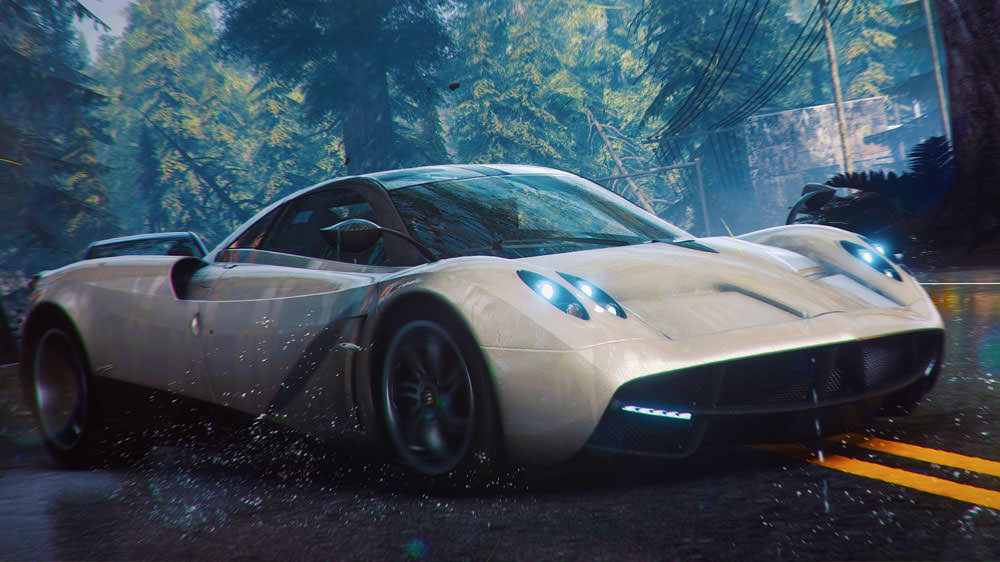The relationship between video games and vehicle manufacturers is a symbiotic one—introducing young consumers to vehicles they might otherwise never drive, much less race. Posters of high-performance vehicles have graced the bedroom walls of teenagers for generations, but there’s a good chance today’s posters don’t come from car manufacturers. Instead, they come from video games like Forza, Gran Turismo and Need For Speed. As esports becomes mainstream and racing games go mobile, car brands find even more opportunities to showcase their legacy through gaming.
Gran Turismo
While Polyphony’s Gran Turismo wasn’t the first racing game to hit consoles, it changed the genre forever by offering realistic graphics and over 100 licensed vehicles to drive. The series has sold over 76 million copies since its debut in 1997 and its games are often featured prominently by PlayStation to show off the gaming console’s technical capabilities.
The list of cars featured in Gran Turismo has more than tripled over the years, and gamers get to experience some of them before real-life drivers do. For example, BMW is launching the 6 Series in Gran Turismo before it debuts in the real world this fall. In the past, Toyota and Nissan have even provided Gran Turismo demo discs along with vehicle marketing materials.
The latest game, Gran Turismo Sport, honors its partners with Brand Central—a new portal for purchasing cars and learning the history of each car manufacturer. The new feature was designed to aid in discovering brands in the real world and includes “premium movies” made by each of these companies.
“Instead of the car dealership from past games, Brand Central is a place where boys discover cars for the first time,” Polyphony founder Kazunori Yamauchi told AListDaily. “When I was in my second year of junior high, I walked into a BMW dealer to pick up a catalog and my heart was racing. We want to recreate that experience of discovering cars for the first time.”
Brands like BMW, Aston Martin and Mercedes have partnered with Gran Turismo to feature “vision” cars—driveable concepts that you won’t find anywhere else.
Forza
As of December 2016, the Forza game franchise has earned over $1 billion at retail, making it the best-selling racing franchise of this console generation, according to NPD. With over three million players joining online each month during the Forza Racing Championship alone, that’s a whole lot of brand awareness for vehicle partners.
Ford has been a partner with Forza since the original game launched in 2005, and it offers a wide variety of in-game vehicles from, which includes the classic Model T and the 2017 Ford GT.
“The video game is extremely important,” Henry Ford III, global marketing manager for Ford Performance, and great grandson of the legendary Henry Ford told Auto Guide. “We want to make our cars—even our supercars—accessible to everyone, and a great way to do that is through the gaming world.”
Ford even gave Forza developer Turn 10 Studios an advance look at the new Ford GT early in its concept phase, giving them access to schematics and other details in order to make its in-game version as close as possible to the real thing.
Video game and car fandoms collide regularly, and vehicle brands understand the value of marketing to this engaged audience—going so far as to debut the latest model to gamers. Porsche unveiled the 2018 Porsche 911 GT2 RS during Microsoft’s E3 2017 press conference to promote Forza Motorsport 7—marking the first time a vehicle had been debuted at the show.
“This moment is a testament to digital and real world racing merging in an unprecedented way,” wrote Alan Hartman, studio head at Turn 10 Studios. The Porche 911 GTS RS will also appear in Gran Turismo Sport this fall, marking the first time Porche has partnered with the Gran Turismo franchise.
Driving Brand Awareness
Partnering with games can make highly-niche car brands a household name. Pagani teamed up with game developer Eden Games to unveil a $2.5 million car inside Gear.Club, a racing title for mobile devices. After flying social media influencers to Switzerland, Pagani and Eden Games revealed the Huayra Roadster in both the real world and inside the game for a limited engagement.
McLaren partnered with Logitech G and other brands to enter the esports arena this year with the World’s Fastest Gamer competition series, conceived by IDEAS+CARS.
“Car manufacturers once saw gaming as an income stream that was a profitable sideline to their normal business, but the switch is coming where brands want their cars to be in certain games, and they work closely with publishers to make sure they’re front and center,” Darren Cox, founder of IDEAS+CARS told AListDaily. “I can see the license fee model changing, where certain games will be able to charge the other way around—offering a premium position for car brands. That’s how important gaming is to the car industry.”
Players who “test drive” vehicles in a game develop their favorites, which can lead to real world brand loyalty. Brand consultancy firm Strategic Vision hosted a focus group of males between the ages of 11-16 and found that Fords and Chevrolets were the vehicles they were most interested in. Why? Because those were the cars they drove in video games.
“I think in general, the average gamer certainly embraces a lot of the qualities and spirit we look to incorporate into our vehicles,” Craig Daitch, senior manager of social media and brand communications at Chevrolet told Auto Guide. “The beauty of gaming today is that it spreads across multiple demographics—it ranges from casual experiences to experts to people of all types.”

